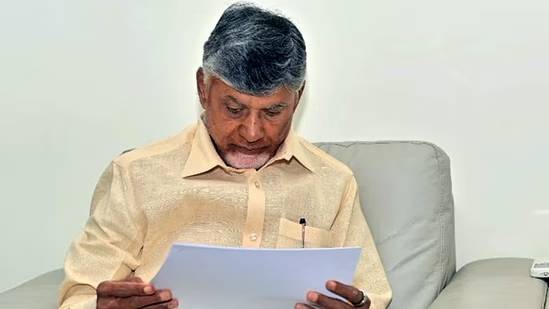Tirupati Laddus: A significant political controversy has arisen in Andhra Pradesh following allegations made by Chief Minister N. Chandrababu Naidu regarding the use of animal fat in the famous Tirupati temple laddus. During a recent legislative party meeting, Naidu claimed that during the tenure of the YSR Congress Party (YSRCP) led by Y.S. Jagan Mohan Reddy, substandard ingredients, including “animal fat,” were used in the preparation of the laddus offered at the Tirupati shrine.
Key Developments in the Tirupati Laddus Row
- Lab Report Claims: The Telugu Desam Party (TDP) has circulated a lab report from a Gujarat-based livestock laboratory that allegedly confirms the presence of “beef tallow” in ghee samples provided by the Tirumala Tirupati Devasthanams (TTD), which oversees the Sri Venkateswara Swamy temple.
- Details of the Report: TDP spokesperson Anam Venkata Ramana Reddy held a press conference displaying the purported lab report, which also claimed the presence of “lard” (pig fat) and fish oil. The sample receipt was dated July 9, 2024, and the lab report followed on July 16.
- Official Response Lacking: Despite the claims made by the TDP, there has been no official confirmation of the lab report from either the Andhra Pradesh government or the TTD.
- Lab Information: The laboratory involved, CALF (Centre for Analysis and Learning in Livestock & Food), is a multidisciplinary facility located at the National Dairy Development Board in Anand, Gujarat.
- Allegations of Desecration: Naidu accused the previous YSRCP government of disrespecting the sanctity of Tirumala by using substandard ingredients in the preparation of laddus. He emphasized that efforts to sanitize the temple have already begun.
- Political Fallout: Andhra Pradesh IT Minister Nara Lokesh stated that the lab results clearly indicated the use of beef fat, fish oil, and lard in the laddus, echoing sentiments from the TDP’s leadership.
- BJP’s Demands: The TDP’s ally, the Bharatiya Janata Party (BJP), has also demanded legal action regarding the alleged use of these ingredients, asserting that the Hindu community’s sentiments have been deeply hurt. BJP OBC Morcha president K. Laxman called it an assault on cultural and religious heritage.
- Reactions from YSRCP: Senior YSRCP leader Y.V. Subba Reddy, who previously served as the TTD chairman, condemned Naidu’s allegations as undermining the sacred nature of the deity and hurting the sentiments of devotees. He emphasized the absurdity of suggesting that animal fat was used in offerings meant for the deity.
- Public Sentiment: The allegations have sparked outrage among various community groups, with many expressing concern over the implications of such claims on the religious practices associated with the Tirupati temple.
- Next Steps: As the controversy unfolds, both parties continue to exchange accusations, and it remains to be seen how this issue will impact the political landscape in Andhra Pradesh leading up to the next elections.
This ongoing dispute highlights the intersection of religion and politics in Andhra Pradesh, raising questions about transparency and the integrity of sacred practices. As developments continue, both the TDP and YSRCP are likely to bolster their narratives in an increasingly polarized environment. For updates on this situation, stay tuned to trusted news sources.
Broader Implications of the Tirupati Laddus Controversy
The Tirupati laddus row not only underscores the intense political rivalry between the TDP and YSRCP but also brings to light broader societal concerns regarding religious sentiments and the sanctity of offerings in Hindu temples. Devotees view the laddus as sacred, integral to their faith and the spiritual experience at Tirupati. Allegations of adulteration strike at the heart of community trust in temple management and religious practices.
Moreover, the controversy has prompted discussions about food safety, ingredient sourcing, and the ethical standards maintained by religious institutions. With the BJP demanding accountability, this issue could catalyze further political mobilization and community responses, potentially influencing voter sentiment in future elections.
As both parties navigate the fallout, they will likely seek to leverage this situation to bolster their political agendas, drawing in public support through rallies, press conferences, and community outreach. The ensuing debates will shape the narrative surrounding food safety, religious practices, and the integrity of public institutions in Andhra Pradesh.


